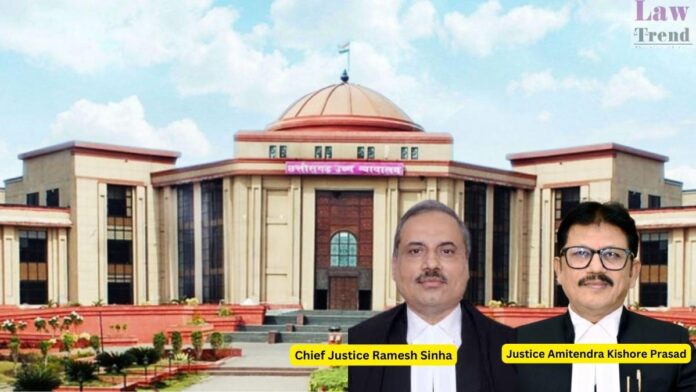The Chhattisgarh High Court has modified the conviction of Dilharan Sahu in a significant judgment, reducing his sentence from life imprisonment for murder to ten years for culpable homicide not amounting to murder. The Division Bench of Chief Justice Ramesh Sinha and Justice Amitendra Kishore Prasad delivered this nuanced verdict in Criminal Appeal No. 307
To Read More Please Subscribe to VIP Membership for Unlimited Access to All the Articles, Download Available Copies of Judgments/Order, Acess to Central/State Bare Acts, Advertisement Free Content, Access to More than 4000 Legal Drafts( Readymade Editable Formats of Suits, Petitions, Writs, Legal Notices, Divorce Petitions, 138 Notices, Bail Applications etc.) in Hindi and English.




